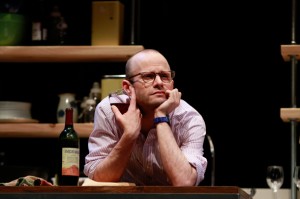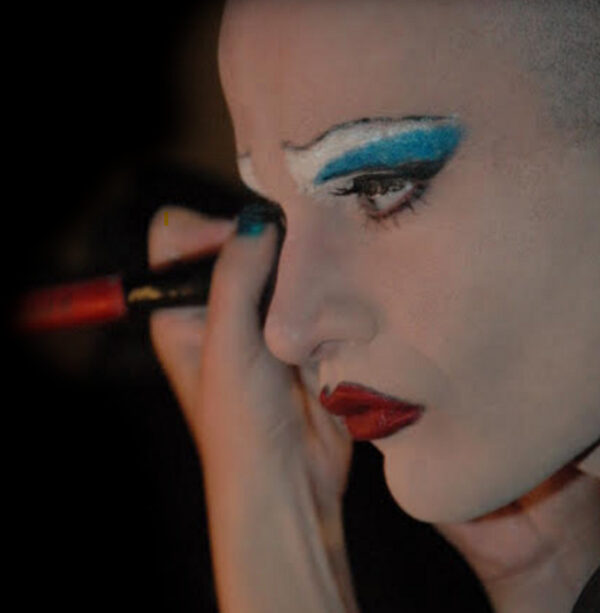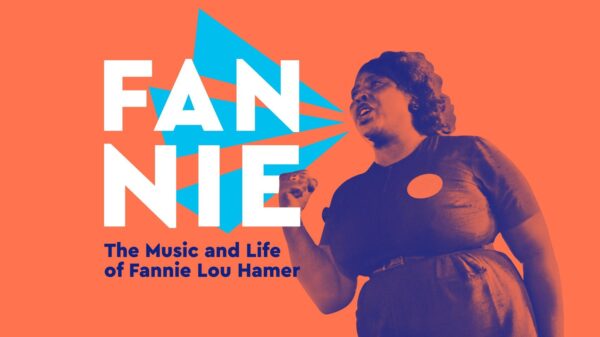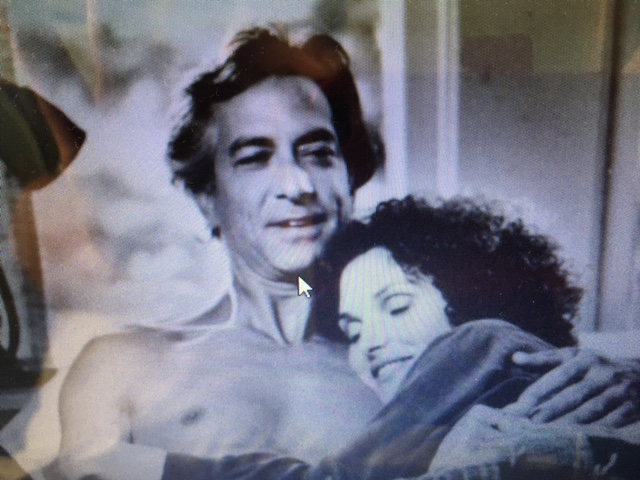Review: This by Melissa James Gibson. Directed by Braden Abraham. With Hans Altwies, Cheyenne Casebier, Nick Garrison, Ryan Shams, and April Yvette Thompson. At Seattle Repertory Theatre thorough May 15.
This, the tweely named new play from rising young playwright Melissa James Gibson sounds a bit sit-commy on paper; four thirtysomething/pushing forty New Yorkers, best friends since college, face the reality they aren’t young anymore. On paper, (or more accurately, on a computer screen…) it sounds like Friends: The Movie where Ross sleeps with Phoebe after Phoebe’s husband dies and Chandler comes out of the closet and is bitter about it, and Rachael turns into a black jazz singer and Joey and Monica are off doing some other project because they weren’t offered enough money. And while it doesn’t always work, This does rise above its sit-com source material to become a funny and frequently touching glimpse into the lives of these aging Gen X’ers. The charm of the characters and the realistic chemistry between them are due to Ms Gibson’s talent at shaping believable characters and giving them dialogue that sounds natural and modern and director Braden Abraham’s careful, well choreographed direction. Like real life, none of the characters in This are perfect, and all of them are fallible and therefore believable and likable despite their imperfections. It’s a pleasure to spend ninety minutes of time with them.
The play opens on a dinner party at the apartment home of new parents Tom, a cabinet maker, and Marrell, his African-American wife who’s a jazz singer. They’re entertaining their best friends; Alan, a gay man with a photographic memory, a wicked sense of humor, and an incipient drinking problem, and Jane, a poet and mother who’s about to mark the one year anniversary of the death of her husband. The four play an amusing party game that doesn’t really amuse Jane while waiting for the arrival of a new friend, a French medical doctor named Jean-Pierre that Tom and Marrell hope to fix up with Jane. At least Marrell hopes to match up their two single friends; the unhappy Tom has strong feelings for Jane himself. Various bad decisions are made and regretted, while Alan decides he needs to change the path of his life, and Jean-Pierre keeps popping up at inopportune times, which we, as the audience, never regret since the character is a sexy French doctor played by a sexy American actor. And, as the play progresses, the focus of the piece gradually shifts away from the four friends to focus primarily on Jane who seems to be the one most likely to “grow up” and face the realization that she is no longer young and it’s time to get on with her life, while Marrell, Alan and Tom still have a ways to go.
Ms Gibson’s casually nuanced and realistic dialogue is what drives this piece. Yes, the characters are a bit unbelievable in their perfectly calculated quirkiness and diversity: a bitter, Jewish, gay, alcoholic man with a photographic memory; the interracial couple from different socio-economic rungs; the vague poet/widow with an interracial child…it does all sound a bit too, too much but the strength of the writing and the interactions of the characters within the writing overcome that tweeness. Ms Gibson has a strong voice, and that voice is reflected in the characters and situations she creates.
She’s also aided by the strength of the cast in this production; all five actors are perfectly cast and give exceptional performances. Two of the men’s roles are a bit under written, but Hans Altwies seems to be born to play manly, blue collar guys in over their head when it comes to love, lust and living in artier circles and he does his usual manly job of making Tom a likable misfit and makes the most of his big scene pitching woo to Jane. And, Ryan Shams as the aforementioned sexy American actor playing the sexy French doctor makes the most of a role that primarily requires him to be plot device but he’s nonetheless a funny and skillful plot device with an adorable accent and bedroom eyes.
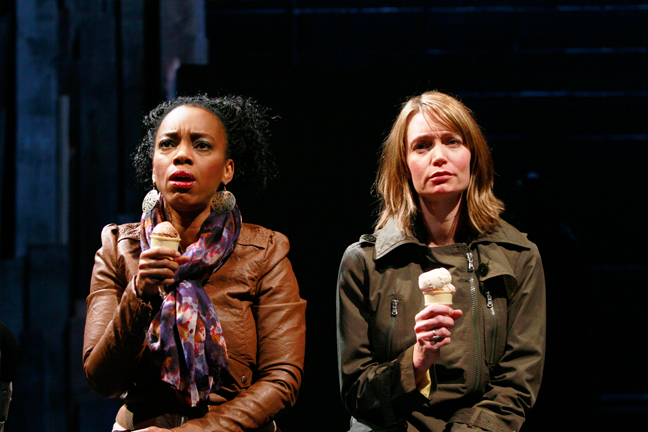
April Yvette Thompson and Cheyenne Casebier in Melissa James Gibson's "This" at Seattle Rep. Photo: Chris Bennion
The ladies really center the show, though, and both April Yvette Thompson as the jazzy but frazzled new mom Marrell and Cheyenne Casebier as the slow to react grieving widow Jane give excellent performances. Ms Thompson’s role is more comedic and she makes the most of her snappier lines, but she also gives good anger when the caca starts to hit the fan. She’s also an amazing singer as well.
But it’s Ms Casebier who has the strongest and most central of roles in This and she quietly anchors the entire production with the strength and frailty of her character. Jane is imperfect and appalled that her friends think that her marriage and life had been perfect; she’s the first one to admit she’s made some poor choices and she’s the first of the characters to own up to them and deal with the outcome. It’s a finely etched and poignant performance but also full of great comedy and warmth.
Finally we come to the gay in the ointment…we don’t shy away from our love of Nick Garrison around here and we’re not about to change our smitten ways. Mr. Garrison’s Alan is the drunken lynch pin that holds these characters together, (he’s the godfather to both Marrell’s and Jane’s children) and he starts getting laughs about 45 seconds into the show and doesn’t stop until his final scene. But, while the character and the performance are both very funny, Alan is also a sad, lonely man unhappy with the directions his life has taken him. Mr. Garrison’s ability to play both the subtle anguish as well as the quick witted sass of the character doesn’t surprise us; we first encountered that talent in his role as Hedwig in Re-bar’s Hedwig & the Angry Inch many, many years ago…we’re just pleased he’s getting good roles where he can display that talent. And, while we wish This explored a bit more into Alan’s life; he doesn’t seem to have much of a GAY life at all, as far as we can see…all his friends appear to be straight and other than the fact he expresses a mild interest in Jean-Pierre; he almost borders on being a stereotypical narrative gay eunuch but we’ll give Ms Gibson the benefit of the doubt…for now. We did enjoy the dramatic arc of Alan and the performance of the actor who played him.
This, (which could have been titled “I’m Sorry” since it’s probably the most used line in the production) is a charmer. It’s very, very funny without being sit-com and the emotion and power of the more dramatic moments never overwhelm the lighter ones. This is smart, witty and modern and I think you should see it…or, rather, see This.


